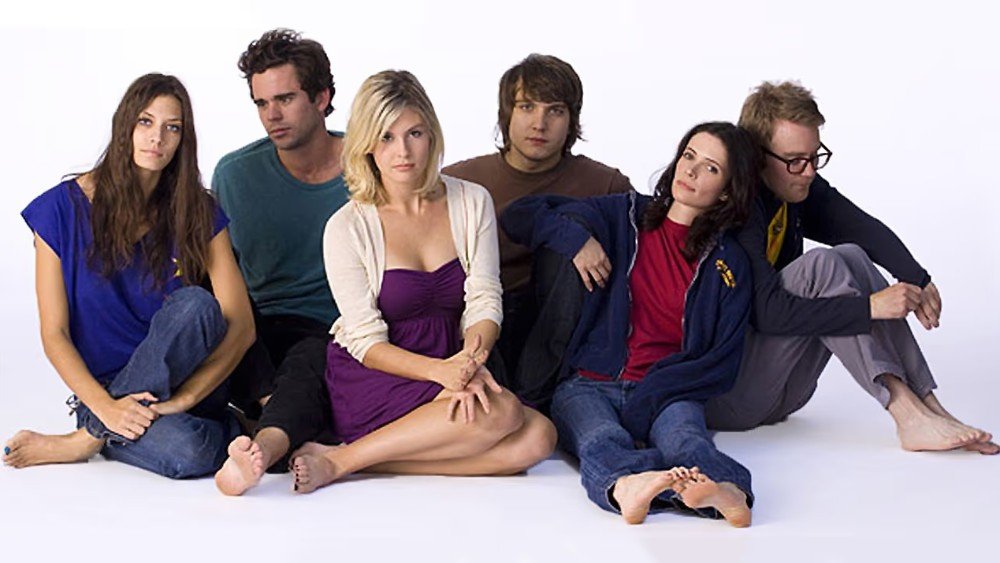
You know a show’s in trouble when the network takes one look at the ratings and says, “Yeah… we’re good.”
Some TV series don’t just get the short end of the stick—they barely get a stick at all. Despite marketing campaigns, star power, and sometimes even actual quality, these shows were yanked off the air after just one lonely episode.
Whether they were too weird, too bad, or just too ahead of their time, these one-hit non-wonders live on in TV infamy.
So here are the ultimate blink-and-you-missed-it TV flops that were cancelled after airing just 1 episode.
Swamp Thing, DC Universe (2019)

Wait, Swamp Thing? The moody, gothic superhero show that people actually liked? Yep—DC Universe pulled the plug after just one episode aired, despite solid reviews and high production values.
Why? Blame behind-the-scenes drama!
Rumors swirled about a miscalculated tax rebate in North Carolina, high production costs, and internal changes at WarnerMedia as it shifted focus toward HBO Max.
Fans were left stunned—and swampy—with no real answers. A whole season had been filmed, but the series was effectively dead on arrival.
It’s now remembered as a cult casualty: lush, dark, promising… and totally ghosted by its own platform. A reminder that even when you do everything right, studio execs can still drag you into the swamp.
Heil Honey I’m Home!, Galaxy (1990)

Oh yes. This was real. A British sitcom that imagined Adolf Hitler and Eva Braun as a bickering couple in a 1950s-style American sitcom—complete with laugh track and nosy Jewish neighbors.
Unsurprisingly, Heil Honey I’m Home! was yanked after one jaw-dropping episode.
Intended as satire but received as offensive chaos, it’s gone down in infamy as one of the worst TV ideas ever. Imagine I Love Lucy meets historical revisionism and you’ve got a concept so tone-deaf it makes reality TV look tasteful.
It’s become a punchline, a cautionary tale, and proof that not all risks are worth taking.
Emily’s Reasons Why Not, ABC (2006)

ABC promoted this one hard. Heather Graham starred as Emily, a self-help author unlucky in love.
The marketing blitz was everywhere—billboards, bus ads, promo spots galore. And then, after one very underwhelming premiere, ABC did a full 180 and pulled it immediately.
Turns out, Emily’s reasons why not included bland writing, clunky humor, and a lead character viewers didn’t exactly root for.
Critics were brutal. Viewers were indifferent. The network was embarrassed. It now holds a special place in TV history as a big-budget faceplant.
Sometimes the most hyped shows fall the hardest—and fastest.
South of Sunset, CBS (1993)

Starring Glenn Frey (yes, from the Eagles rock band) as a tough-talking private eye in L.A., South of Sunset debuted on CBS… and was canceled literally the next day.
Why? Terrible ratings, weak writing, and the fact that Frey—charisma aside—wasn’t exactly a seasoned actor. Critics called it derivative; audiences didn’t even get a chance to care.
Only one episode aired before CBS said, “Nope!” and shelved the rest. It’s now one of those blink-and-you-missed-it series that lives on in TV trivia games and “Worst TV Ever” lists.
Don Henley never showed up to save him.
Public Morals, CBS (1996)

Edgy! Gritty! Too inappropriate for prime time! Steven Bochco’s Public Morals was a cop sitcom (yes, sitcom) set in the NYPD’s vice unit and filled with so much crude humor, CBS yanked it after a single airing.
Critics slammed it for being all sleaze, no substance. The jokes were mean-spirited, the tone was bizarre, and it was an awkward fit for the network’s lineup.
Even Bochco, the mind behind Hill Street Blues, couldn’t save this one. It tried to push the envelope, but instead it lit it on fire and got escorted off air by the decency police.
Lawless, Fox (1997)

This one had a cool hook: Brian Bosworth—yes, The Boz, former NFL bad boy—playing a renegade private investigator in Miami. Think Walker, Texas Ranger in a leather vest.
Unfortunately, Lawless debuted to shrugs and snickers, not high-fives. Viewers weren’t buying Bosworth’s acting chops, and the writing wasn’t doing him any favors.
Fox pulled it after one episode, and Lawless quietly vanished into the archives of “Oh, right, that was a thing.”
It’s remembered now more as a curiosity than a cautionary tale—one of those brief, strange blips where Hollywood thought, “Why not give a linebacker his own detective show?”
The Melting Pot, BBC1 (1975)

Created by and starring Spike Milligan, this UK sitcom attempted to tackle immigration and race relations with broad, slapstick humor… and failed spectacularly.
Featuring Milligan in brownface as an Indian immigrant, The Melting Pot sparked immediate backlash. It aired only once before the BBC shelved the rest of the series, citing its offensive content and poor reception.
Even in the 1970s, the show felt wildly out of touch. It’s now infamous for how not to handle sensitive topics with comedy. If “aged like milk” were a show, this would be it.
Quarterlife, NBC (2008)

Originally launched as a web series, Quarterlife was picked up by NBC and heralded as the future of TV—young creatives! Modern storytelling! Viral buzz!
But when the first episode aired on TV, the future looked bleak. Ratings tanked. Audiences found it overly self-serious and insufferably hipster. NBC pulled it after just one episode and sent it crawling back to the internet.
It’s now mostly remembered as a cautionary tale of digital-to-network transition gone wrong. The title ended up being pretty ironic—this show didn’t even get to live out its first week, let alone a full quarter of life.
The Great Defender, Fox (1995)

This courtroom dramedy starred Michael Rispoli as a fast-talking, rule-bending defense attorney. But despite the charisma of its lead and the potential of its genre, The Great Defender failed to make a case for itself with viewers.
Fox aired a single episode before throwing in the towel.
Critics found the tone uneven and the writing underwhelming, unable to decide if it was a legal drama or a screwball comedy.
It had the swagger of Boston Legal but none of the punch. Ultimately, it never had a chance to win over the jury (or the network).
Melba, CBS (1986)

Melba is another show that holds the unfortunate (and weirdly specific) title of being canceled after just one episode, this time thanks not to bad ratings, but to history itself.
The sitcom starred Melba Moore as a Manhattan tourism director juggling work, divorce, and motherhood. It aired on CBS on January 28, 1986—the same day as the Space Shuttle Challenger disaster.
Understandably, the nation wasn’t in the mood for laughs, and the network pulled the remaining episodes immediately.
Though it wasn’t exactly setting critics on fire, Melba never got a real shot. It’s now a trivia footnote: the rare show canceled after one episode… and a national tragedy.
Co-Ed Fever, CBS (1979)

Ah, Co-Ed Fever—the TV industry’s attempt to cash in on the National Lampoon’s Animal House craze.
Set in a formerly all-female college that had just gone co-ed (get it?), the show was meant to be a rowdy, risqué campus comedy. But CBS pulled the plug after just one episode aired, citing poor reviews and general outrage over its frat-boy tone.
The pilot got test-dumped in Canada and bombed harder than a midterm you didn’t study for. Critics called it tasteless, audiences weren’t amused, and CBS was like, “Never mind.”
Co-Ed Fever is now a TV legend for proving that not every toga party belongs in primetime.
Maxxx, Channel 4 (2020)

This UK import starred O-T Fagbenle as a washed-up boy band star trying to reclaim his fame. It was brash, stylized, and very British in its humor—too much, perhaps, for U.S. audiences.
Only one episode aired before it faded into streaming obscurity, only to come back months later and enjoy a proper primetime run.
Critics were mixed: some saw it as edgy and clever, others found it try-hard and tonally messy.
With its exaggerated celebrity satire and chaotic energy, Maxxx was a bold swing that was equally loved and hated.
Viva Laughlin, CBS (2007)

Imagine a glitzy casino drama, a murder mystery, and a musical… all mashed into one—and you’ve got Viva Laughlin, a show that dared to ask, “What if people randomly broke into pop songs during serious moments?”
Inspired by the British series Blackpool, it starred Hugh Jackman (briefly), had music from the Rolling Stones, and still managed to be a spectacular disaster.
It aired just one episode in Australia before getting axed, and only two episodes in the U.S. before CBS pulled the plug.
Viewers were confused, critics were brutal, and the tone-deaf karaoke stylings became instant cringe. Viva Laughlin went all-in and busted hard.